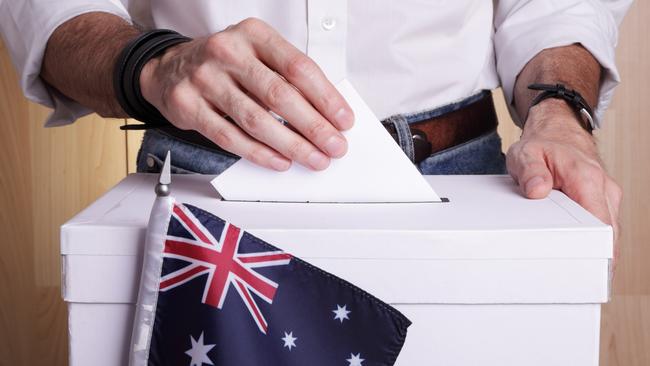History shows No vote on Indigenous voice will win, says referendums expert
A world-leading expert on referendums says Australians will vote No when the Indigenous voice to parliament referendum question is put to them later this year.

A world-leading expert on referendums says that regardless of the wording of the constitutional amendment on the Indigenous voice to parliament, Australians will vote No when the question is put to them later this year.
Matt Qvortrup, a constitutional law expert who predicted the outcome of referendums such as Brexit, said he doubted the legal ramifications dominating the debate around the voice would decide people’s vote.
Attorney-General Mark Dreyfus has suggested to the referendum working group an alternative to the use of “executive government” in the constitutional amendment, which elicited concerns from conservatives.
Voice supporters including Liberal senator Andrew Bragg and priest Frank Brennan have warned Labor against “executive government” remaining in the amendment or risk High Court challenges.
Working group member Thomas Mayo said he was disappointed by the supporters of the voice who were publicly criticising the current amendment. “It has been frustrating to see prominent conservatives, who say they support a constitutionally enshrined voice, jumping at shadows,” he said.
Professor Qvortrup, a visiting professor at the Australian National University, said legal questions including the inclusion of executive government in the amendment would largely be seen as “an elite issue” by voters. He raised the fact the referendum would be compulsory as something that would encourage more people to vote No.
“In countries with compulsory voting the No vote increases. A lot of people who are forced to vote are sceptical,” he said.
Professor Qvortrup said that without bipartisan support, the referendum would fail.
“To pass a referendum you need bipartisan support. When you have that you generally get about 60 per cent of the vote,” he said. “I would predict that the voice would get 46 per cent.”
UNSW pro vice-chancellor and Uluru Statement from the Heart co-chair Megan Davis said last year that while she understood the attention paid to bipartisan support, it may not be as important as it used to be.
Of the 44 referendum questions since 1901 to change elements of the Constitution, only eight have been successful and they had bipartisan support.
“On the bipartisanship question, there is that calculation that people make that eight out of 44 had bipartisan support … but the last referendum was 40 years ago,” she said at the time.
Mr Mayo said he also believed the voice could be won without bipartisan support.
“Public support is holding up while much of the Coalition are making it obvious they don’t want the referendum to succeed,” he said. “This should tell us we can win without bipartisanship.”
Professor Qvortrup said a No vote for the voice, which advocates say would be devastating for the country, would not necessarily lead to Labor losing the election in 2025.




To join the conversation, please log in. Don't have an account? Register
Join the conversation, you are commenting as Logout